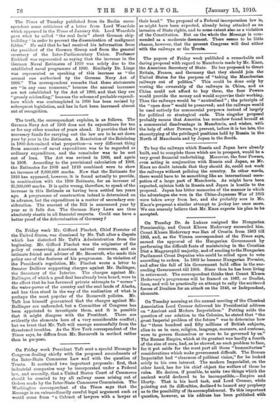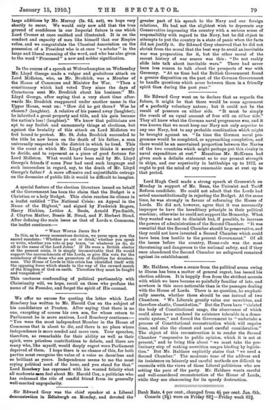On Tuesday morning at the annual meeting of the Classical
Association Lord Cromer delivered his Presidential address on "Ancient and Modern Imperialism." Putting aside the question of our relation to the Colonies, he stated that " the great Imperial problem of the future" was to determine how far "three hundred and fifty millions of British subjects, alien to us in race, religion, language, manners, and customs, were to govern themselves or were to be governed by us." The Roman Empire, which at its greatest was hardly a fourth of the size of ours, had, as he showed, no such problem to face, for it put aside for the most part all those "humanitarian" considerations which make government difficult. The Roman Imperialist had "clearness of political vision," for be looked solely to his own interest. The modern Imperialist, on the other hand, has for his chief object the welfare of those he rules. He desires, if possible, to unite two things which the ancient world declared to be incompatible,—Empire and liberty. That is his hard task, and Lord Cromer, while pointing out its difficulties, declined to hazard any prophecy as to the possibility of its accomplishment. To this important question, however, as his address has been published with
large additions by Mr. Murray (2s. 6d. net), we hope very shortly to recur. We would only now add that the true ground of confidence in our Imperial future is one which Lord Cromer at once omitted and illustrated. It is on the conduct and capacity of men like himself that our Empire relies, and we congratulate the Classical Association on the possession of a President who is at once "a scholar" in the large and liberal meaning of the word, and who has also given to the word "Proconsul" a new and nobler signification.







































 Previous page
Previous page